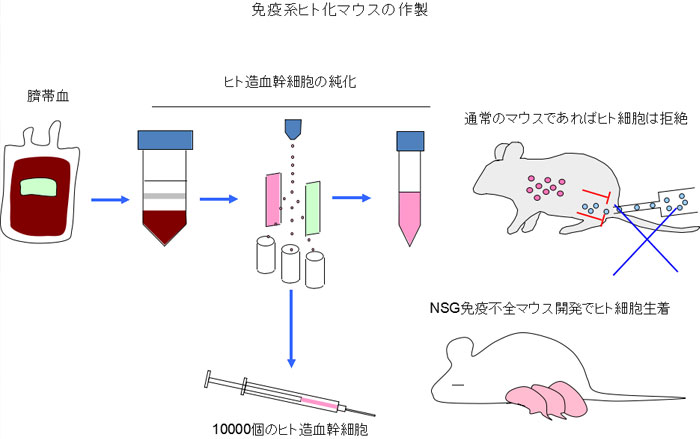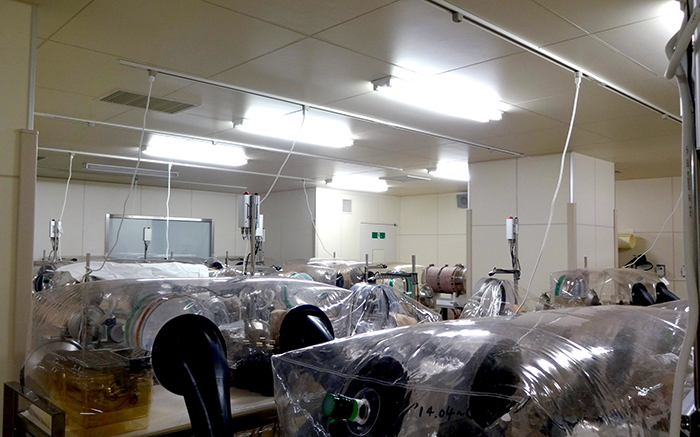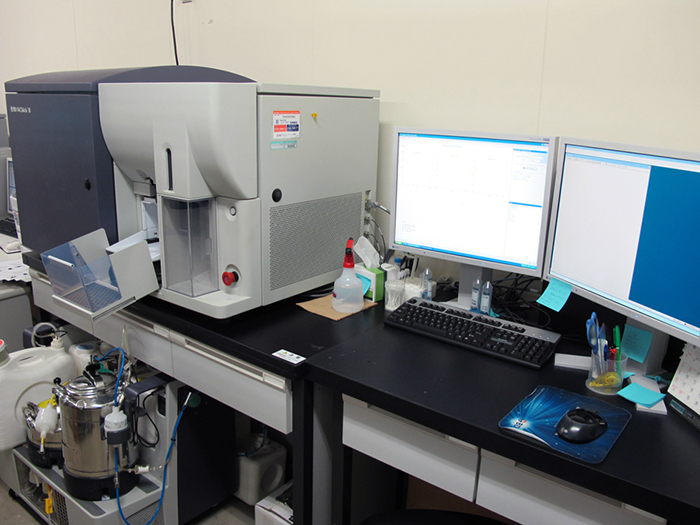Research and Development Projects Adopted in FY2014
Development of next-generation humanized mice for pre-clinical in vivo testing
Project Leader:Ishikawa Fumihiko
Group Director and Chief Scientist, Laboratory for Human Disease Models, Center for Integrative Medical Sciences, RIKEN
Development of antibody drugs, vaccines/adjuvants, and cellular therapy is expected to help improve outcomes in various human diseases in the near future.
Nevertheless, accurate prediction of therapeutic efficacy as well as adverse effect is not always possible in experimental animals such as rodents.
Direct examination of human cells or human molecules should lead to safe and efficient drug development.
Based on this, we have been creating a xenograft model called the "humanized mice".
By injecting human hematopoietic stem cells into immune-compromised NOD/SCID/Il2rgKO newborns, we have successfully reconstituted human acquired and innate immune system in the recipient mice.
In this project, we aim to develop the "next-generation" humanized mice.
Due to the species barrier between human hematopoietic cells and mouse environment, it is not possible to detect antigen-specific human immune response in the conventional humanized mice.
We aim to create novel humanized mouse system in which human T cells, B cells, and dendritic cells communicate with each other to elicit antigen-specific human immune response in vivo.
By using the next-generation humanized mice, we will evaluate how antibody drugs can actually target human leukemia or interact with human immune subsets.
Moreover, we will create a vaccine model to validate whether human immune response against tumor-associated antigens can be elicited in vivo.
Through in vivo examination of bioactive agents using humanized mice, we hope to facilitate development of effective therapies for diseases that are currently difficult to treat.
<Figure1>Development of humanized mouse
We purify human hematopoietic stem cells that are able to differentiate into all blood and immune cells from cord blood.
The human hematopoietic stem cells account for less than 1% of cord blood cells. We transplant human hematopoietic stem cells into newborn immune-compromised mice.
In normal mice, human cells are recognized as non-self by mouse immunity and rejected immediately.
However, in immune-compromised mice, human hematopoietic stem cells can differentiate into multiple immune subsets with optimal maturity in bone marrow, spleen, and thymus of the recipients.
<Figure2>
We need to carefully maintain mice that lack immune system. At our institution, we utilize vinyl isolators and Biobubble systems.
In the controlled environment, we can breed immune-deficient animals and conduct in vivo experiments using the mice safely.
<Figure3>
One of the key things in creating humanized mice is to handle human samples in a sterile condition and to purify human stem cells at a high purity.
To do so, we use a cell sorting system. By using highly-purified stem cells, we reconstitute human immunity in mice.



